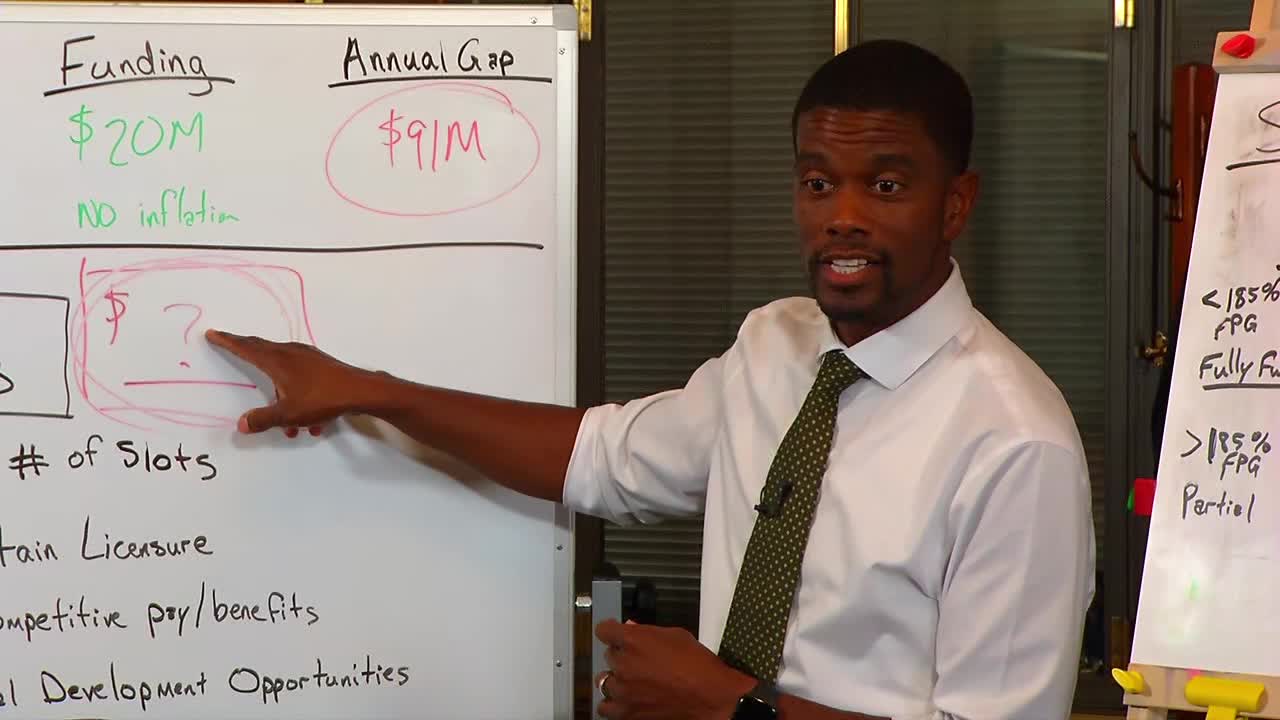St. Paul council votes to override mayor’s veto of property tax levy
St. Paul city leaders have voted to override the mayor’s veto of a proposed property tax levy aimed at supporting child care and early childhood education for low-income families.
The St. Paul City Council voted 5-2 to override Mayor Melvin Carter’s July 27 veto at its meeting Wednesday afternoon. The special levy will now end up on the November 2024 ballot.
Advocates for the measure celebrated after the vote.
“This is a great day for Saint Paul children and their families,” wrote Councilmember Nelsie Yang, who co-authored the ordinance. “Around the country, cities have demonstrated that early learning initiatives like this are doable and that they have a huge impact on preparing children for kindergarten and helping parents enter the workforce. This resolution allows Saint Paul voters to decide if they want to invest in children’s futures.”
Before the council’s meeting Wednesday, Carter discussed the program proposal and explained that he vetoed it because it would leave the city with a financial burden much larger than it could handle based on the funding the tax levy would raise. He added that the council doesn’t have any detailed budget proposal for the program and so it’s not even clear exactly what the program would cost the city.

St. Paul Mayor Melvin Carter gives a whiteboard presentation Wednesday, Aug. 16, 2023, breaking down the potential costs of a proposal to provide child care and early learning for much of the city's young children. Carter had vetoed the measure, arguing the proposed tax levy wouldn't come close to paying for the service; the City Council overrode his veto 5-2 on Wednesday. (KSTP)
To make it actually work, Carter said the council needs to create an implementation plan for the program, a detailed budget, allow city staff to confirm the plan is something that can be done, and secure the funding needed to support the program.
RELATED: Mayor Carter vetoes proposed property tax levy for early childhood education
When he vetoed the measure, Carter said in a letter that he was concerned the levy only raised $20 million per year when the child care program is expected to cost around $39 million per year for children up to age 2 in families below 185% of the federal poverty level.
Carter said the total estimated cost balloons far past that when factoring in coverage for children ages 2-4, subsidies for families beyond 185% of the poverty level — plus the cost of getting the program off the ground. In a news conference before the City Council vote Wednesday, he estimated it would all cost $111 million per year, leaving a $91 million funding gap.
“This proposal has no plan or budget, and promises over $100M in services against $20M in annual funding. No one argues otherwise,” Carter wrote on X, the platform formerly known as Twitter, after the City Council overrode his veto. “Empty promises don’t feed children so I want to be clear: my team cannot — and will not — administer this in current form.”
The mayor added that he was open to reworking the proposal into something that would work better but some council members said the current proposal would still be a boost for families living paycheck to paycheck.
[anvplayer video=”5188920″ station=”998122″]